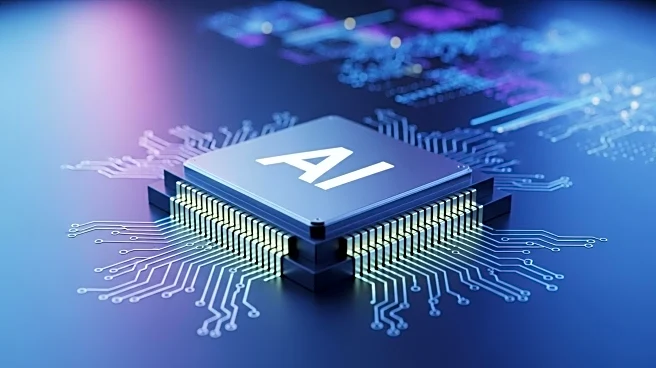What's Happening?
OpenAI has appointed Mike Liberatore, the former Chief Financial Officer of Elon Musk's xAI, as its new business finance officer. Liberatore will be responsible for overseeing OpenAI's AI infrastructure, reporting to CFO Sarah Friar, and collaborating with Greg Brockman's team to scale the company's access to computing resources. Liberatore's move to OpenAI follows his brief tenure at xAI, where he was involved in significant financial activities, including a $5 billion debt raise and a strategic equity investment. This appointment occurs in the context of a competitive landscape for AI talent, highlighted by a legal dispute between Musk and OpenAI. Musk, a co-founder of OpenAI, had previously sued the company and its CEO, Sam Altman, for allegedly straying from its original mission. OpenAI responded with a countersuit against Musk for harassment.
Why It's Important?
The hiring of Mike Liberatore by OpenAI underscores the intense competition among technology companies for top talent in the artificial intelligence sector. This move is significant as it reflects OpenAI's strategic efforts to strengthen its financial and operational capabilities amidst ongoing legal and competitive challenges. The rivalry between OpenAI and Musk's ventures highlights broader industry dynamics where companies are aggressively vying for skilled professionals to advance their AI initiatives. This competition could influence the pace of innovation and the direction of AI development, impacting stakeholders across the tech industry, including investors, developers, and consumers.
What's Next?
With Liberatore's appointment, OpenAI is likely to focus on enhancing its financial strategies and infrastructure capabilities. The company may also continue to navigate its legal challenges with Musk, which could affect its public perception and operational focus. As the AI talent war intensifies, other tech companies might respond by bolstering their recruitment efforts or forming strategic partnerships to secure expertise. The outcome of the legal disputes between Musk and OpenAI could set precedents for how intellectual property and mission alignment are managed in the tech industry.
Beyond the Headlines
The legal and competitive tensions between OpenAI and Musk's ventures may raise ethical questions about the governance and mission alignment of AI companies. As these organizations grow and evolve, maintaining a balance between commercial interests and original missions could become a critical challenge. The industry's focus on talent acquisition might also lead to discussions about the sustainability of such competitive practices and their impact on innovation and collaboration in the AI field.











